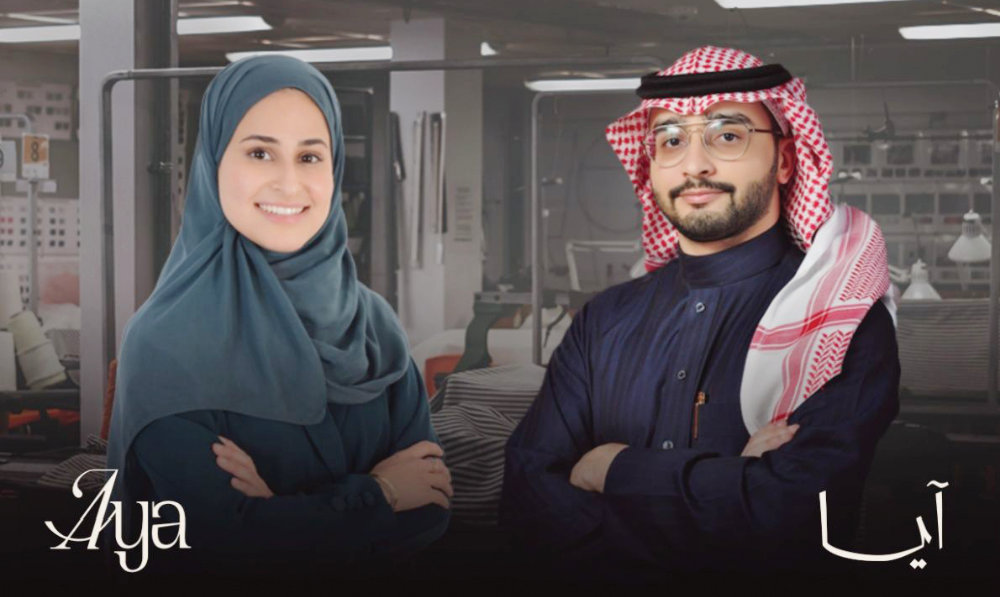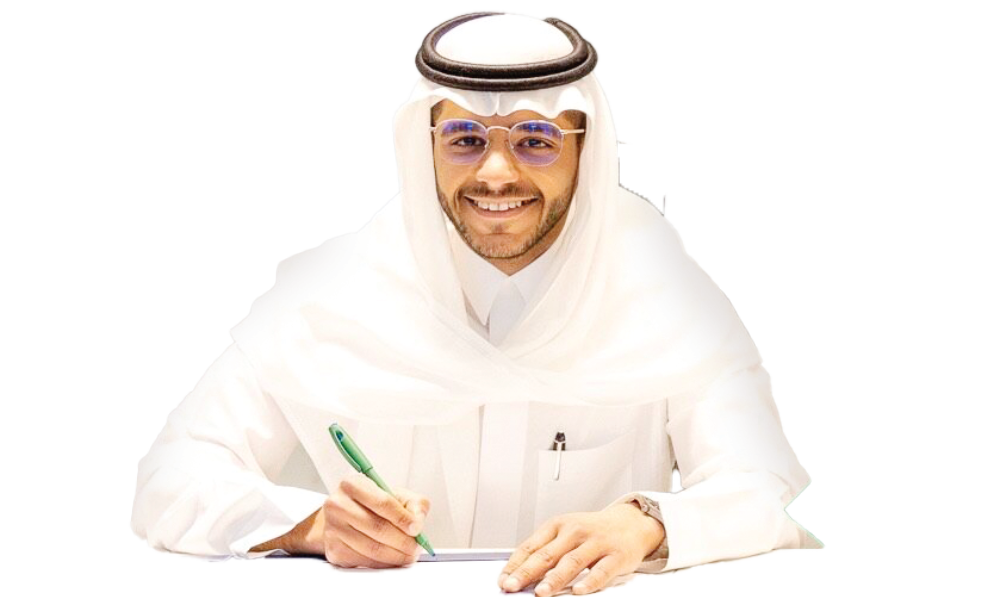RIYADH: A wave of new investments is fueling the growth of startups across various sectors, from fintech and e-commerce to healthcare and sustainability.
The latest funding rounds highlight investor confidence in emerging technologies and innovative business models reshaping markets in the region and beyond.
Aya, a Saudi e-commerce platform specializing in modest fashion, has closed a SR6 million ($1.5 million) seed funding round.
The investment was led by Khwarizmi Ventures, with participation from Raed Ventures, Joa Capital, and FENA Holdings, as well as Turki Alrajhi and a group of angel investors.
Founded by Munira Al-Kadi and Abdulrahman Al-Ammar, Aya aims to unify the modest fashion market through a trend-driven discovery platform.
The company leverages real-time customer insights to predict trends, enabling local manufacturers to deliver on-demand fashion efficiently.
“This investment is more than capital — it’s validation of our bold vision to disrupt a massive, fast-growing traditional market,” said Al-Kadi.
“We’re entirely changing the game, and we’re looking for fearless, entrepreneurial talents to join our mission,” she added.
Homam Meaddawi, partner at Khwarizmi Ventures, highlighted Aya’s potential in an industry that is seeing rapid growth.

Founded by Munira Al-Kadi and Abdulrahman Al-Ammar, Aya aims to unify the modest fashion market through a trend-driven discovery platform. (Supplied)
“We are proud to support talented founders who formerly worked together in e-commerce. Aya aims to disrupt the modest fashion industry, beginning with the multi-billion dollar, fragmented abaya market,” he said.
With this investment, Aya plans to enhance its platform, refine its product offerings, and expand its reach within the region.
Ajras secures $1.5m pre-series A round for proptech expansion
Saudi property tech startup Ajras has raised $1.5 million in a pre-series A funding round led by Veda Holding.Founded in 2022 by Muath Al-Jubailan, Ajras provides innovative financing solutions to simplify rent payments for the commercial and industrial sectors.
The company is licensed by the General Authority for Real Estate and recently introduced a rent now, pay later solution.
The latest investment follows Ajras’ SR105.05 million seed funding round closed in November 2023, which was led by Madarek International.

Founded in 2022 by Muath Al-Jubailan, Ajras provides innovative financing solutions. (Supplied)
The company’s financing model aligns with Saudi Arabia’s broader efforts to modernize the real estate sector and enhance financial accessibility for businesses.
Veda Holding, headquartered in Riyadh, serves as a business incubator supporting both early-stage startups and established companies with strategic funding.
PayTabs Group acquires 51 percent stake in PayTabs Egypt
Saudi Arabia-based PayTabs Group has acquired a 51 percent stake in PayTabs Egypt from EFG Finance, an EFG Holding company, in a move aimed at strengthening its footprint in the Egyptian digital payments market.
The acquisition aligns with PayTabs’ long-term strategy to enhance digital transformation and financial inclusion across the North African country.
“We remain deeply committed to Egypt’s digital payments future, and our focus on innovation and customer-centricity will only grow stronger,” said Abdulaziz Al-Jouf, CEO and founder of PayTabs Group.
Aladdin El-Afifi, CEO of EFG Finance, emphasized that the decision to sell part of its stake was part of a broader strategic shift.
“By reallocating resources from non-core assets, we enhance our ability to drive sustainable growth and innovation in key areas. This decision aligns with our long-term strategic objectives and commitment to delivering value to our stakeholders,” he said.
Through this acquisition, PayTabs aims to provide merchants with more seamless digital payment solutions while expanding its services across the region.
Klaim raises $10m series A and $16 million financing fund
Klaim, a healthcare fintech startup, has raised $10 million in series A funding, along with an additional $16 million financing fund to accelerate its expansion.
Since its founding in 2019, Klaim has been focused on transforming medical insurance claims processing through AI-powered solutions that help healthcare providers improve cash flow.
By leveraging artificial intelligence and vast data analytics, Klaim predicts insurance payment patterns and streamlines claim settlements.
The newly raised funds will support its expansion in the UAE, Saudi Arabia, and Oman while refining its technology to enhance efficiency in healthcare payments.
Klaim has also strengthened its presence in Saudi Arabia through a strategic partnership with Tharawat Tuwaiq Financial Co.
Under this collaboration, Tharawat Tuwaiq secured regulatory approval for a SR60 million healthcare financing fund, with the first transaction set for March 2025.
Additional funds are expected in the second half of 2025 to further support the sector.
Motery completes seed round at $8m valuation
Motery, a Kuwait-based fintech startup, has completed its seed funding round, valuing the company at $8 million.
The startup aims to streamline the automotive purchasing experience by offering an all-in-one platform for online car buying and financing.
Motery’s platform allows consumers to browse vehicles, compare financing options, and complete purchases entirely online.
The company plans to use the fresh capital to enhance its technology, expand its service offerings, and increase market penetration in Kuwait’s automotive sector.
Longevity Wellness Hub secures $4m to expand across the GCC
Longevity Wellness Hub has raised $4 million to expand its presence across the Gulf Cooperation Council and further develop its wellness solutions.
The company integrates quantum diagnostics, precision-designed infusions, and advanced recovery therapies to optimize health outcomes.
A major component of Longevity’s expansion is its investment in quantum scanning technology, which analyzes biometrics and voice frequencies to provide personalized health insights.
The company also incorporates alternative therapies such as hyperbaric oxygen therapy and red light therapy, blending ancient healing practices with modern biohacking innovations.
Institutional investors, family offices among investors in Phoenix Venture Partners’ innovation fund
Phoenix Venture Partners has successfully completed the second closing of its innovation fund.
The round saw participation from investors in France, Luxembourg, Mauritius, Kuwait, and Saudi Arabia, including institutional investors, family offices, and high-net-worth individuals.
Phoenix Venture Partners Innovation Fund aims to support innovations and technologies, particularly in sectors such as deep tech, AI, and sustainable solutions.
The fund’s growing investor base reflects global confidence in its strategic vision.
ORA Technologies raises $1.9m
Moroccan startup ORA Technologies has secured $1.9 million in a pre-series A funding round led by Witamax and Azur Innovation Fund, bringing its total funding to $4.4 million.
This marks the first time the company has received investment from venture capital firms.
ORA Technologies focuses on driving financial and digital inclusion in Morocco.
The funds will be used to scale Kooul, its food delivery platform, which has expanded to six cities in just five months, and to accelerate the rollout of ORA Cash, its digital payment and money transfer solution.
Aramco Ventures backs German startup Ucaneo’s direct air capture facility
Aramco Ventures, the investment arm of Saudi Aramco, has invested in German climate tech startup Ucaneo, which is developing the country’s largest direct air capture facility.
Ucaneo previously raised €6.75 million ($7.36 million) in a seed funding round in September, but did not disclose the specific amount invested by Aramco Ventures.
The Berlin-based company focuses on advancing DAC technology to remove carbon dioxide from the atmosphere efficiently.
DAC is gaining traction globally as industries and governments seek scalable solutions to meet carbon reduction targets.
Aramco’s investment signals its interest in innovative climate technologies and aligns with broader efforts to support sustainability initiatives.
OIA backs US biotech firm Tidal Vision
Oman Investment Authority, the sultanate’s sovereign wealth fund, has invested in American biotech company Tidal Vision as part of its strategy to support sustainable innovations.
OIA participated in Tidal Vision’s $140 million series B financing round, which was oversubscribed, though the exact amount of its investment was not disclosed.
Tidal Vision specializes in biopolymers, offering biomolecular solutions for industries such as water treatment, agriculture, and material science.
The company’s core innovation is the use of chitosan, a natural polymer derived from crustacean shells, as an alternative to traditional chemicals.
The investment aligns with OIA’s broader objectives of fostering sustainability and supporting the localization of advanced technologies.
OIA, which managed assets exceeding $49 billion in 2023, has been actively investing in companies that drive environmental and industrial advancements.
With the new funding, Tidal Vision is expanding its global presence by developing new infrastructure in Europe, Texas, and Ohio, furthering its mission to scale sustainable material solutions worldwide.






















